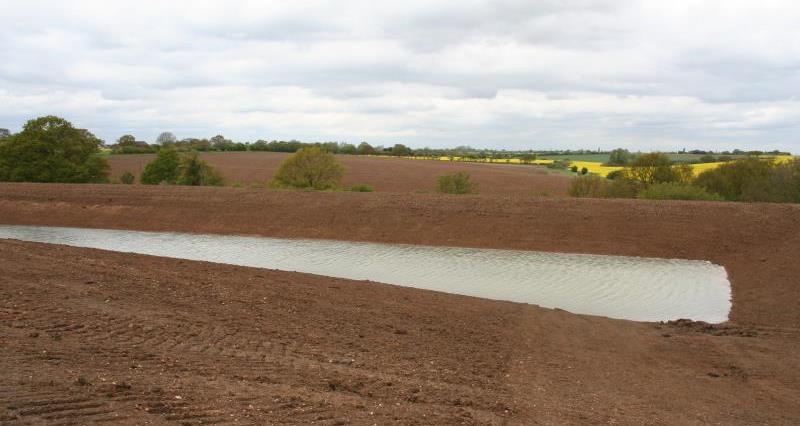In brief...
Defra has published a roadmap setting out how it intends to make the water sector more resilient to the impacts of climate change. While it inevitably focuses on how water companies can meet the water scarcity challenge, it is reassuring to note that farming needs are acknowledged as well.
Defra has published a roadmap setting out how it intends to make the water sector more resilient to the impacts of climate change.
'Enabling resilience in the water sector' looks at enhancing the existing water policy framework. It builds on ongoing discussions with the water industry, regulators, consumer groups and other water users such as farmers to understand the priorities for reform.
The NFU continues to represent the agricultural and horticultural sector in these discussions.
Defra is keen for farmers and other businesses to improve their resilience by working with the water companies. It gives the example of Water Resources East Anglia, which has brought together agricultural concerns, water companies, the energy sector and others to improve long-term water resilience.
While Defra’s policy framework inevitably focuses on how water companies can meet the water scarcity challenge, it is reassuring to note that farming needs are acknowledged in the roadmap.
Specific reference is made to farms which rely on directly abstracted freshwater for cooling, washing, incorporating into products and growing crops, with recognition that water scarcity risks vary considerably between businesses, depending on:
- How much water the business is able to access (particularly when river flows are low)
- How much water the business will need in future
- What options the business has to meet that need
- The capacity of the business to adapt to reduced water availability (for example, changing crops or installing water reuse systems).
Defra recognises that without a step change in our national approach, lack of access to adequate water supplies could lead to some businesses being unable to operate while farmers and growers could lose crops or have lower quality crops. Moreover reduced operations at power stations because of a lack of cooling water could affect the national grid, particularly if other generation sources were unavailable.
The department stresses that it is the responsibility of individual businesses to plan for their own water resilience. But it notes this is just one of the many risks facing businesses which they must manage to be successful. Food and drink is singled out as a business sector that has taken a lead in this area.
Defra suggests it will take action to remove regulatory barriers to businesses that seek to increase their resilience. As part of the Rural Productivity Plan (launched in 2015), government is committed to review the planning and other regulatory constraints facing rural businesses, and to re-examine measures that can be taken to address them. This includes an examination of planning barriers to the installation of farm reservoirs.
The Countryside Productivity Scheme also supports investment in reservoirs, irrigation and water management systems, but the latest version of rural development funding for water resource management is very restrictive for would-be applicants.
Defra believes that there is real potential for farm businesses to enhance their resilience by working with water companies. The majority of businesses do not have the capacities that water companies have to enhance their resilience, for example to build large-scale water storage or to move water around the network.
